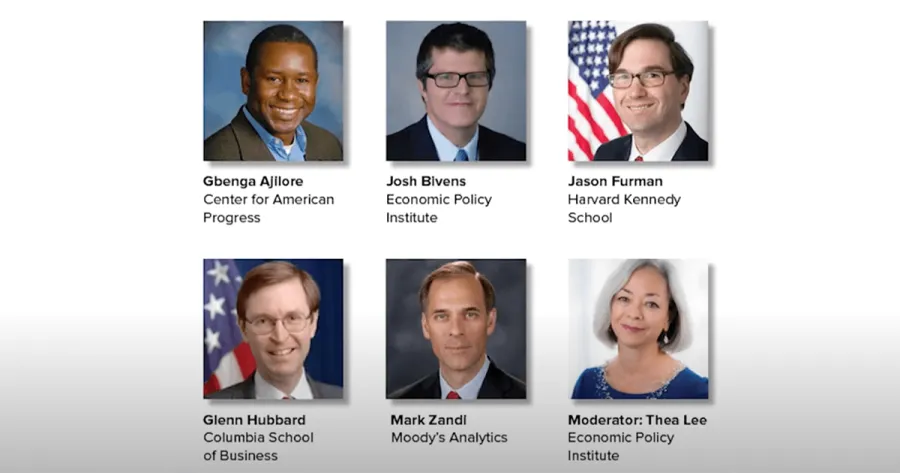Economists with Diverse Views Agree: Federal Aid to States, Cities, Towns Is Needed Now

Economists of diverse backgrounds, who might otherwise disagree on a range of policy issues, spoke with a single voice on Monday on the need for Congress to provide robust aid to states, cities and towns.
Such aid, they said, is crucial in the midst of an economic crisis that is decimating state and local budgets and threatening essential public services that are critical to beating the pandemic and jumpstarting the economy.
During a press call organized by the Economic Policy Institute (EPI), Mark Zandi, Glenn Hubbard, Jason Furman and Gbega Ajilore and EPI’s own Josh Bivens said there was no logical reason for the federal government to deny much-needed aid to states, cities and towns. Without such aid, they would be forced to continue slashing essential public services that are now, as a result of the coronavirus pandemic, in even greater demand.
The consensus was striking. Zandi is a former adviser to Republican Sen. John McCain’s presidential campaign; Hubbard served as chair of the Council of Economic Advisors during the George W. Bush administration; Furman served as chair of the Council of Economic Advisors under President Barack Obama; and Ajilore is senior economist at the Center for American Progress, a progressive think tank.
They all agreed that substantial federal aid would prevent the further loss of public service jobs and a worsening of the economic crisis. Nearly 1 million public service jobs were lost in the month of April alone as a result of the economic downturn brought on by the pandemic.
“State and local governments desperately need financial support,” Zandi said, predicting that without federal aid, nearly 3 million more public sector jobs will be lost over the next 12-18 months. That would cause about a 2% reduction in the gross domestic product, which is how much the country was growing per year during the recovery after the Great Recession, he said.
State and local should be “priority No. 1” for Congress to include in the next relief bill, Zandi added.
Furman amplified that point, stating that this is a “critical time” to provide state and local aid.
“I can’t imagine a successful next package without that,” Furman said, adding that among the things the federal aid should be used for is to rebuild state-level public health services.
Because state and local governments must balance their budgets, a revenue shortfall would leave them with no choice but to cut services and lay off workers. The U.S. House of Representatives has passed legislation that includes $1 trillion in relief to states, cities and towns to prevent further damage to communities across America, but that proposal has stalled in the Senate. Senate Majority Leader Mitch McConnell has blocked state and local aid though his own state of Kentucky is among those hardest hit by the economic fallout.
The economists agreed that money spent in this way by the federal government has a high rate of return. Zandi estimated that for every dollar the federal government provides states, cities and towns today, it will get back $1.34 the following year.
“It could even be larger,” he added. “So this is a very effective way to support the economy.”
The decision is a “no brainer,” agreed Hubbard, explaining that studies repeatedly show the large “multiplier effect” of such aid, making it a win-win for everyone. “There is no logic to the argument that you shouldn’t assist state and local governments,” Hubbard added.
State and local aid is especially crucial for “left-behind communities,” Ajilore said.
In prior COVID-19 relief packages, “these communities have not received any relief even though these groups are often suffering the most harm,” he said. “Support and relief provided for state and local governments will benefit rural places and communities of color.”
Watch the full press call here.
Though some right-wing lawmakers oppose state and local aid, calling them unnecessary “bailouts,” there is a bipartisan consensus among governors and other state leaders that such aid is vitally necessary. Florida GOP Gov. Ron DeSantis – a staunch ally of President Donald Trump – has even put his state’s budget on hold as he waits to see how much aid Congress will provide.
